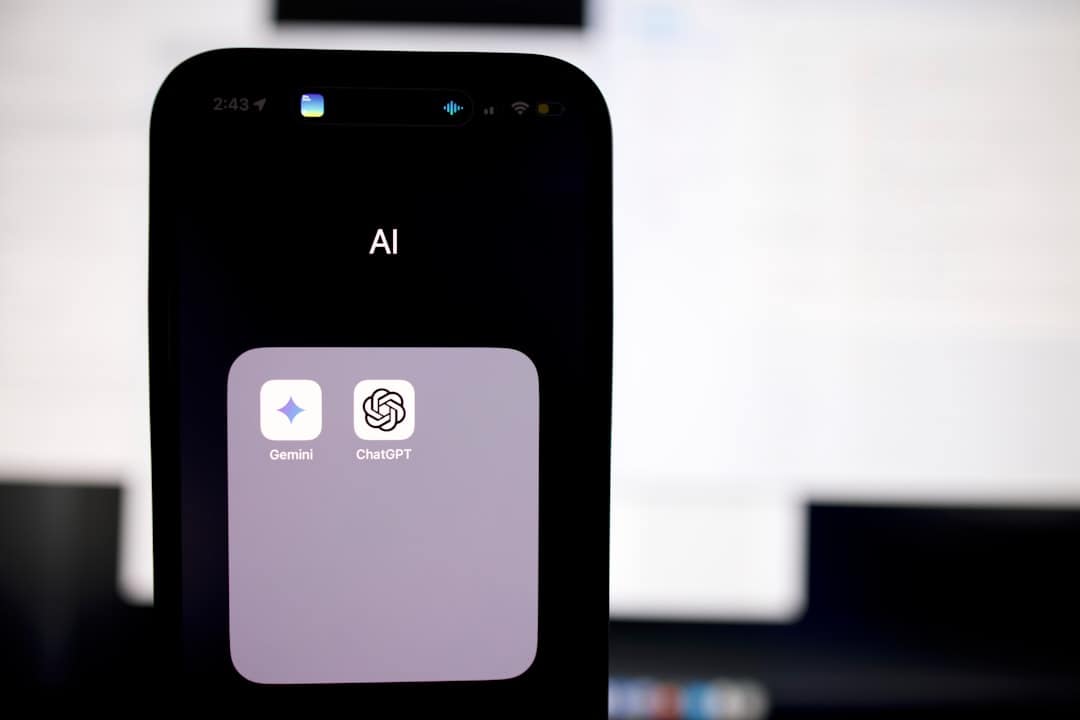The concept of the metaverse has gained significant attention in recent years, with its origins traced back to Neal Stephenson’s 1992 science fiction novel “Snow Crash.” The metaverse is defined as a collective virtual shared space that combines virtually enhanced physical reality with physically persistent virtual reality. It represents a fully immersive digital universe accessible through the internet, where users are represented by digital avatars. Rather than a single virtual world, the metaverse encompasses a network of interconnected virtual spaces that continuously evolve and expand.
The metaverse has the potential to transform various aspects of human interaction and digital engagement. It presents new opportunities in fields such as entertainment, education, commerce, healthcare, social interaction, and work. As technology advances, the metaverse is becoming increasingly sophisticated and immersive, blurring the distinction between physical and digital realms.
The development of virtual reality (VR) and augmented reality (AR) technologies is positioning the metaverse to become an integral part of daily life, offering extensive possibilities for creativity, exploration, and collaboration.
Key Takeaways
- The Metaverse is a collective virtual shared space, created by the convergence of virtually enhanced physical reality and physically persistent virtual reality.
- Entertainment and gaming in the Metaverse offer immersive experiences, interactive storytelling, and social gaming opportunities.
- The Metaverse has the potential to revolutionize education and training through virtual classrooms, simulations, and interactive learning experiences.
- Virtual real estate and commerce in the Metaverse provide opportunities for businesses to establish virtual storefronts and engage in virtual transactions.
- Healthcare and therapy in the Metaverse offer telemedicine, virtual therapy sessions, and immersive experiences for mental health treatment.
Entertainment and Gaming
Immersive Experiences
Virtual reality technology enables users to feel as though they are truly present in these digital environments, enhancing the sense of immersion and interactivity. This technology allows users to engage with digital content in a more intimate and interactive way, creating a more realistic and engaging experience.
Beyond Traditional Gaming
Gaming in the metaverse goes beyond traditional video games, offering a diverse array of experiences such as virtual concerts, art installations, and interactive storytelling. Users can create and customize their own avatars, build virtual homes and spaces, and even monetize their creations through virtual commerce.
A Platform for Creative Expression
The metaverse provides a platform for creative expression and collaboration, allowing users to engage with digital content in new and exciting ways. Users can express themselves through their avatars, virtual creations, and interactive experiences, and connect with others who share similar interests and passions.
Education and Training

The metaverse has the potential to revolutionize education and training by providing immersive and interactive learning experiences. Virtual classrooms and training simulations can transport students and professionals to realistic virtual environments, allowing them to practice real-world skills in a safe and controlled setting. This can be particularly beneficial for fields such as healthcare, engineering, and emergency response, where hands-on experience is crucial.
In the metaverse, educators can create engaging and interactive lessons that cater to different learning styles, making learning more accessible and enjoyable for students. Virtual field trips can take students to historical landmarks, natural wonders, and cultural sites around the world, providing a rich and immersive learning experience. Additionally, the metaverse can facilitate global collaboration and cultural exchange, connecting students and educators from different parts of the world in a shared virtual space.
Virtual Real Estate and Commerce
The metaverse presents new opportunities for virtual real estate and commerce, allowing users to buy, sell, and trade digital assets within virtual environments. Virtual real estate can range from virtual homes and storefronts to entire virtual islands and landscapes. Users can purchase virtual land and develop it into unique spaces for entertainment, business, or social gatherings.
This has led to the emergence of a virtual real estate market, where digital properties are bought and sold for real money. Virtual commerce in the metaverse extends beyond traditional e-commerce, offering a platform for creators and entrepreneurs to showcase and sell their digital creations. Users can design and sell virtual clothing, accessories, artwork, and other digital goods within the metaverse.
This has created new opportunities for artists, designers, and content creators to monetize their work in a virtual space. The metaverse has the potential to redefine the way we think about ownership and commerce in a digital world.
Healthcare and Therapy
The metaverse has the potential to transform healthcare and therapy by providing new avenues for remote care and immersive therapeutic experiences. Virtual reality technology can be used to create realistic simulations for medical training and surgical procedures, allowing healthcare professionals to practice complex techniques in a safe and controlled environment. Additionally, virtual reality therapy has shown promise in treating phobias, PTSD, anxiety disorders, and chronic pain by immersing patients in therapeutic environments that promote relaxation and healing.
Telemedicine in the metaverse allows patients to consult with healthcare providers from the comfort of their own homes, reducing barriers to access and improving healthcare outcomes. Virtual support groups and therapy sessions can connect individuals from different locations in a shared virtual space, fostering a sense of community and support. The metaverse has the potential to make healthcare more accessible, personalized, and effective through immersive digital experiences.
Social Interaction and Networking

Immersive Social Experiences
Users can socialize with friends, attend virtual events, and participate in shared activities such as gaming, shopping, and entertainment. Virtual reality technology enhances the sense of presence and connection, allowing users to interact with others as if they were physically together.
Virtual Social Spaces for Diverse Communities
Virtual social spaces in the metaverse can cater to a wide range of interests and communities, providing a platform for like-minded individuals to come together and engage in shared experiences. This has the potential to foster new connections and relationships across geographical boundaries, creating a more inclusive and diverse social landscape.
Redefining Social Interaction in the Digital Age
The metaverse has the potential to redefine the way we think about social interaction and networking in a digital age.
Work and Productivity
The metaverse has the potential to transform the way we work by providing new opportunities for remote collaboration, productivity, and creativity. Virtual offices and meeting spaces can facilitate remote work by allowing colleagues to collaborate in a shared virtual environment. This can enhance communication and teamwork by providing a more immersive and interactive platform for meetings, brainstorming sessions, and project collaboration.
Virtual reality technology can also be used to create immersive workspaces for creative professionals such as artists, designers, architects, and engineers. These virtual environments can provide tools for 3D modeling, prototyping, and visualization, allowing users to bring their ideas to life in a digital space. The metaverse has the potential to unlock new possibilities for creativity and innovation by providing a platform for collaborative creation and experimentation.
In conclusion, the metaverse represents a new frontier for digital experiences that has the potential to revolutionize entertainment, education, commerce, healthcare, social interaction, and work. As technology continues to advance, the metaverse is becoming increasingly more sophisticated and immersive, blurring the lines between the physical and digital worlds. With its endless possibilities for creativity, exploration, and collaboration, the metaverse is poised to become an integral part of our daily lives.
If you’re interested in exploring the potential impact of the metaverse on different industries, you may want to check out the Metaversum podcast series. In the first part of the podcast, they discuss various future applications that are conceivable in the metaverse, offering valuable insights into the possibilities of this emerging technology. You can listen to the podcast here. Additionally, they also delve into the potential of the metaverse in healthcare and wellness, as well as the development of Xiomi HyperOS, a new operating system designed for the metaverse. These articles provide a comprehensive look at the potential of the metaverse in various industries.
FAQs
What is the metaverse?
The metaverse is a collective virtual shared space, created by the convergence of virtually enhanced physical reality and physically persistent virtual reality. It is a concept that has gained popularity in recent years due to advancements in virtual reality and augmented reality technologies.
What are some conceivable future applications in the metaverse?
Some conceivable future applications in the metaverse include virtual meetings and conferences, virtual shopping experiences, virtual education and training, virtual healthcare services, virtual social interactions and entertainment, virtual real estate and property showcasing, and virtual tourism experiences.
How can the metaverse be used for virtual meetings and conferences?
In the metaverse, virtual meetings and conferences can be conducted using avatars to represent participants, virtual environments to simulate real-world meeting spaces, and interactive tools for presentations and discussions. This can provide a more immersive and engaging experience compared to traditional video conferencing.
What are virtual shopping experiences in the metaverse?
Virtual shopping experiences in the metaverse involve creating virtual storefronts and digital representations of products, allowing users to browse and purchase items in a virtual environment. This can provide a more interactive and personalized shopping experience compared to traditional e-commerce platforms.
How can the metaverse be used for virtual education and training?
In the metaverse, virtual education and training can be conducted through immersive simulations, interactive learning environments, and virtual classrooms. This can provide a more engaging and effective learning experience compared to traditional methods.
What are virtual healthcare services in the metaverse?
Virtual healthcare services in the metaverse involve providing medical consultations, therapy sessions, and wellness programs in a virtual environment. This can improve access to healthcare services and provide new opportunities for remote care and telemedicine.
In the metaverse, virtual social interactions and entertainment can be facilitated through virtual events, social spaces, and interactive experiences. This can create new opportunities for socializing, attending live performances, and participating in virtual communities.
What are virtual real estate and property showcasing in the metaverse?
Virtual real estate and property showcasing in the metaverse involve creating virtual representations of real-world properties, allowing users to explore and visualize them in a virtual environment. This can be used for real estate marketing, property tours, and architectural visualization.
How can the metaverse be used for virtual tourism experiences?
In the metaverse, virtual tourism experiences can be created to simulate travel destinations, historical sites, and cultural attractions in a virtual environment. This can provide new ways for people to explore and experience different places without physically traveling.











Leave a Reply